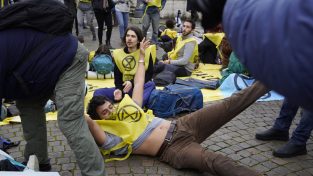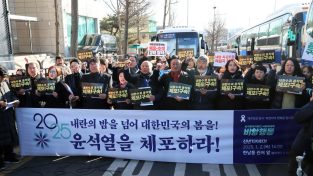Croazia, vince il centrodestra ma senza maggioranza
Il partito del primo ministro uscente, Andrej Plenković, ha ottenuto il 34 per cento dei voti e 60 seggi su 151 in Parlamento. Un risultato che obbliga a cercare coalizioni
Si sono tenute mercoledì 17 aprile le elezioni parlamentari in Croazia, con le quali i cittadini hanno eletto i 151 membri del Sabor – questo il nome del Parlamento croato. Ad ottenere la maggioranza relativa è stato il partito di centrodestra Unione democratica croata (HDZ), già al governo del Paese da due mandati con il primo ministro Andrej Plenković. Il 34 per cento ottenuto però, per quanto Plenković ne abbia parlato come un successo nel comizio post elettorale a cui le foto si riferiscono, non è sufficiente ad ottenere la maggioranza in Parlamento: si traduce infatti in 60 seggi su 151, peraltro 6 in meno di quelli ottenuti alla scorsa tornata. Si prospettano dunque colloqui con altri partiti di opposizione, per cercare di formare una coalizione che sostenga un terzo governo Plenković.
Secondo partito alle urne sono stati i Socialdemocratici con il candidato Zoran Milanović – già primo ministro tra il 2011 e il 2016 e presidente dal 2020 – con il 25 per cento; i colloqui però si svolgeranno più probabilmente con il terzo partito, i nazionalisti di destra del Movimento Patriottico, che ha ottenuto 14 seggi.
















